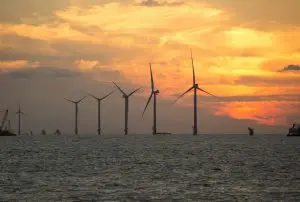As COP26 approaches, Brevia will be tracking the latest milestones in the UK’s preparations for the upcoming climate conference. With the 100 day countdown to the climate conference looming, the Government has published a series of strategies and consultations on delivering net zero.
1. 100 days to COP26
Friday 23 July marked the 100 day countdown to the COP26 Summit.
Over the weekend, the COP26 President hosted a two day ministerial event in London. The meeting was the first face-to-face ministerial meeting of its kind in over 18 months and brought together representatives from over 50 countries. Topics of discussion focused on climate finance, climate adaptation, as well as implementing the Paris Agreement.[1]
Additionally, ahead of the 100 day countdown, the G20 Climate & Energy Ministerial meeting in Napes, Italy, agreed to limit warming to 1.5 degrees – in line with the Paris Agreement. However, no agreement was reached on the elimination of coal and overseas coal financing.[2]
In related COP26 news, Darren Jones MP, Chair of the Business, Energy and Industrial Strategy Committee, has written to Alok Sharma MP on efforts to engage businesses in COP26 and the steps to promote participation and ensure the summit matches the ambition to be ‘the most inclusive COP ever’.[3] The COP26 team has said it plans to publish additional information on engagement during COP26 ‘shortly’.[4]
2. A smarter, fairer, net zero energy system
The Government published two key strategies on delivering a net zero energy system; the Smart Systems and Flexibility Plan and the Energy Digitalisation Strategy.[5]
The Smart Systems and Flexibility Plan is an update on the initial plan launched back in 2017 and sets out the opportunities of developing smart grid technologies to enable a more flexible grid. The Energy Digitalisation Strategy covers the better use of energy system data to support the move towards a net zero energy system.
Alongside this, the Government published two consultations proposed reforms to the energy system. The Government is consulting on its proposal to create a ‘Future System Operator’ (FSO), separate from the National Grid. Specifically, BEIS is proposing that all NGESO functions be carried out by the FSO, with the ESO also taking on the role of strategic network planning and forecasting for gas, but not real time system operation.[6]
Additionally, the Government is consulting on its proposals for the future energy governance framework, with two options set forward. One would see Ofgem as the Strategic Body with separate code managers under the regulator, for which the Government has indicated a strong preference, whilst the second option would see the FSO as the integrated rule making body, meaning there would be no separate code managers.[7]
The Government has said it hopes both reforms could help minimize potential conflicts of interest, as well as bring forward increased investment in clean technologies. Both consultations will run until 28 September 2021.
Separately, another two calls for evidence were launched on V2X exports, as well as on barriers to large scale and long duration electricity storage.
3. Energy Retail Strategy published
The Government has also published its new Energy Retail Strategy. The document forms a key part of the Government’s decarbonisation plan, as the way consumers engage with their energy usage will have to undergo substantial change in order to realise the 2050 net zero target.[8]
The document sets out a suite of measures in order to build greater consumer engagement with energy use, including Ofgem’s faster switching programme, smart data initiatives and the continued roll-out of smart meters. The document also outlines the expectations of energy companies to support the transition to a fair, smart and green energy retail system.. Specifically, the document states that energy retail companies should facilitate consumer flexibility to help balance the system and reduce system carbon emissions.
Another key takeaway from the document is the Government’s plan to trial opt-in an opt-out collective switching trials in 2024 in order to tackle the underlying causes of the loyalty penalty. Under the opt-out proposal, households on the highest default tariffs that have not switched for a while will be switched to a competitive new contract, unless they choose not to be. Under the opt-in scheme, households on the most expensive tariffs will be offered a simple method of switching to a cheaper tariff.[9]
The Government also confirmed that legislation will be introduced to allow the energy price cap to continue beyond 2023 if needed. A letter providing further detail on the reasoning behind the decision has been published by the Energy and Clean Growth Minister and can be accessed here.
BREVIA CONSULTING PROVIDES STRAIGHTFORWARD POLITICAL AND COMMUNICATIONS SUPPORT TO BUSINESSES AND ORGANISATIONS
Discover how Brevia can help you and your organisation by contacting the Brevia Energy Team on 020 7091 1650 or emailing us at: contact@brevia.co.uk
[1] Alok Sharma, Twitter, 15 July 2021, Link
[2] Cabinet Office, ‘COP26 President-Designate welcomes agreement from G20 to limit warming to 1.5C but urges further action on coal phase out’, 23 July 2021, Link
[3] Business, Energy and Industrial Strategy Committee, 26 July 2021, Link
[4] The Rt Hon Alok Sharma MP, COP26 Oral Questions, 14 July 2021, Link
[5] BEIS, ‘Smart technologies and data to future-proof UK energy’, 20 July 2021, Link
[6] BEIS, ‘Proposals for a Future System Operator role’, 20 July 2021, Link
[7] BEIS, ‘Energy code reform: governance framework’, 20 July 2021, Link
[8] BEIS, ‘Millions of families to benefit as government acts to drive down energy bills’, 23 July 2021, Link
[9] BEIS, ‘Energy retail: opt-in and testing opt-out switching’, 23 July 2021, Link




